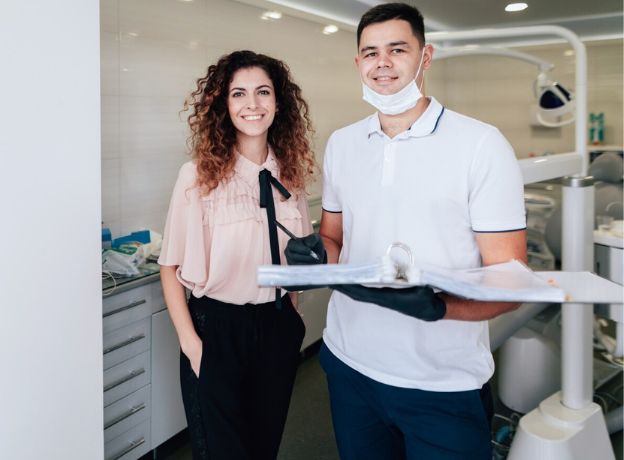
If you’re thinking about becoming a dental receptionist, you might be wondering what it takes to succeed in this role. Dental offices rely heavily on receptionists to keep things running smoothly. From scheduling appointments to handling patient records, the responsibilities are diverse and vital. That’s where a dental receptionist course comes in, equipping you with the skills you need to excel.
Here are some of the top skills you can expect to learn during a dental receptionist course:
1. Effective Communication
Good communication is the backbone of any receptionist role, especially in a dental office. You’ll learn how to interact professionally and empathetically with patients, many of whom may feel anxious about dental visits. A course will teach you techniques to handle patient inquiries, explain procedures, and provide reassurance when needed. Clear communication is also essential when coordinating with dentists, hygienists, and other staff members.
2. Appointment Scheduling and Calendar Management
Dental offices often have packed schedules, making efficient appointment management crucial. In a dental receptionist course, you’ll learn how to use scheduling software to book, reschedule, and confirm appointments. You’ll also pick up tips for minimizing double-bookings and ensuring smooth patient flow throughout the day.
3. Patient Record Management
Managing patient records is a key part of a dental receptionist’s job. Courses cover how to maintain accurate and up-to-date records, both in paper and electronic formats. You’ll learn how to handle sensitive patient information securely and comply with privacy regulations like HIPAA. Proper record management ensures that the dental team has all the information they need to provide the best care.
4. Insurance Processing and Billing
Navigating dental insurance can be complex, but it’s a big part of the job. A dental receptionist course will teach you how to verify insurance coverage, process claims, and explain billing to patients. Understanding these processes helps patients feel supported and ensures the office receives timely payments.
5. Technical Proficiency
Modern dental offices rely on technology to stay organized. You’ll gain hands-on experience with practice management software, email systems, and digital scheduling tools. Familiarity with these programs not only boosts your efficiency but also helps the entire office function more smoothly.
6. Customer Service Skills
As the first point of contact for patients, dental receptionists play a big role in shaping their experience. You’ll learn how to greet patients warmly, handle complaints gracefully, and provide excellent customer service. A friendly and professional demeanor can make a lasting impression and encourage patients to return.
7. Problem-Solving Abilities
Dental offices can be fast-paced, and unexpected situations are bound to arise. Whether it’s a last-minute cancellation or a patient showing up late, you’ll need to think on your feet. A dental receptionist course will teach you strategies to handle these challenges efficiently and keep the office running smoothly.
8. Basic Understanding of Dental Terminology
While you don’t need to be a dentist to work as a receptionist, understanding basic dental terminology is a big plus. Courses often include lessons on common dental procedures and terms, enabling you to communicate more effectively with both patients and staff.
9. Time Management and Organization
With so many tasks to juggle, staying organized is essential. You’ll learn techniques to prioritize your responsibilities, manage your time effectively, and stay on top of daily operations. These skills ensure that nothing falls through the cracks.
10. Professionalism
Last but not least, professionalism is a cornerstone of the role. You’ll learn how to dress appropriately, maintain a positive attitude, and represent the dental office in the best light possible. A professional approach builds trust with patients and reflects well on the entire practice.
Conclusion
A dental receptionist course offers a comprehensive foundation for anyone looking to thrive in this role. By developing skills in communication, organization, technology, and more, you’ll be well-prepared to handle the challenges and rewards of the job. Whether you’re just starting your career or looking to enhance your current skills, these courses provide valuable insights and practical knowledge to help you succeed.